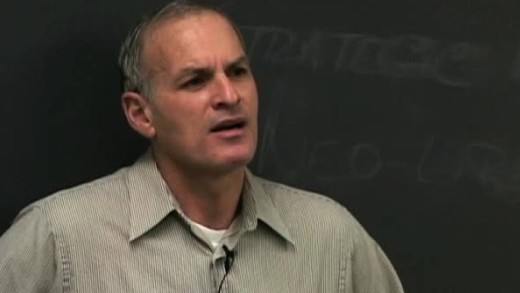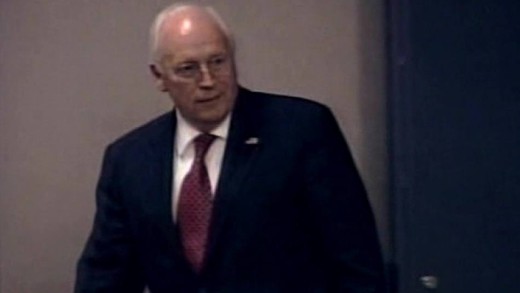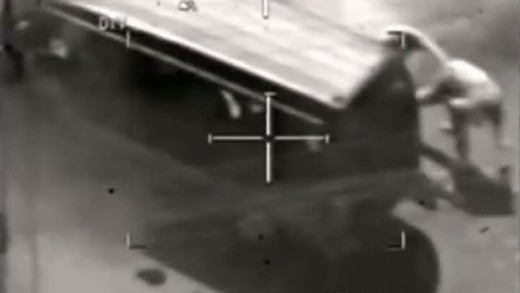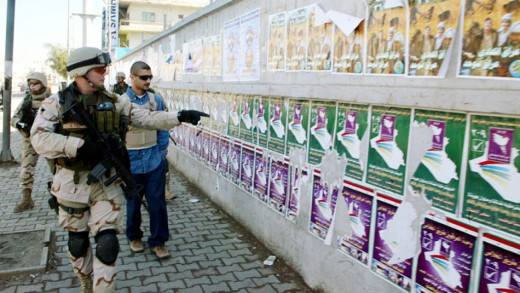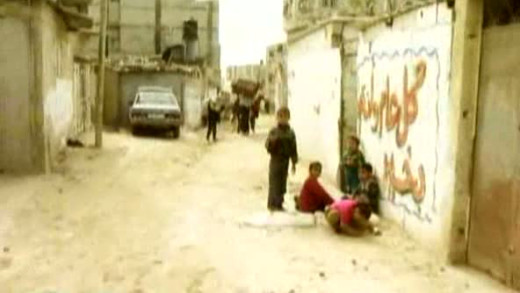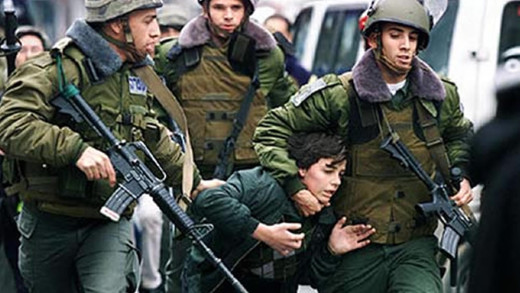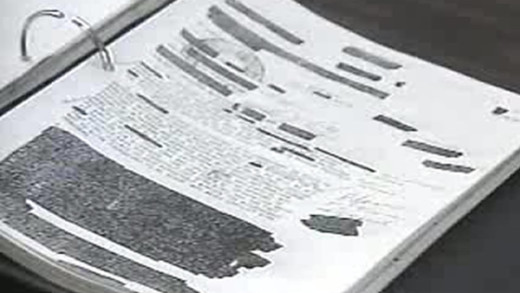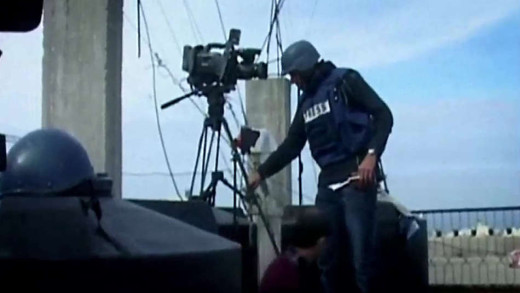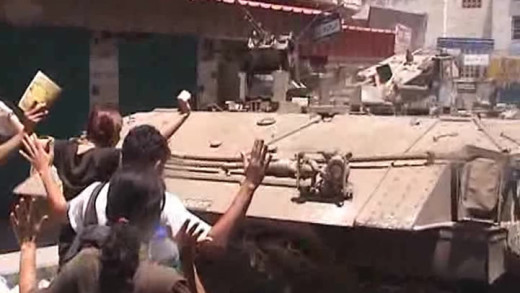American Radical is a film about the life of academic Norman Finkelstein, a son of Holocaust survivors and ardent critic of Israel. Called a lunatic and self-hating Jew by some, and an inspirational figure by others, American Radical also serves to explore the issues at the centre of Palestine and Israel as Finkelstein travels around the world negotiating a voice of realism among impassioned critics and Israeli supporters. Uncompromising, even in the face of a denial of tenure at DePaul University, Finkelstein is revealed as a rare academic figure who puts the pursuit of justice above the security of his career, to expose the brutal reality of the occupation of Palestine.
HyperNormalisation wades through the culmination of forces that have driven this culture into mass uncertainty, confusion, spectacle and simulation. Where events keep happening that seem crazy, inexplicable and out of control—from Donald Trump to Brexit, to the War in Syria, mass immigration, extreme disparity in wealth, and increasing bomb attacks in the West—this film shows a basis to not only why these chaotic events are happening, but also why we, as well as those in power, may not understand them. We have retreated into a simplified, and often completely fake version of the world. And because it is reflected all around us, ubiquitous, we accept it as normal. This epic narrative of how we got here spans over 40 years, with an extraordinary cast of characters—the Assad dynasty, Donald Trump, Henry Kissinger, Patti Smith, early performance artists in New York, President Putin, Japanese gangsters, suicide bombers, Colonel Gaddafi and the Internet. HyperNormalisation weaves these historical narratives back together to show how today's fake and hollow world was created and is sustained. This shows that a new kind of resistance must be imagined and actioned, as well as an unprecedented reawakening in a time where it matters like never before.
The United States proudly self-identifies as the major purveyor of peace and democracy across the world. But does this perception of self match up to the actual policies and history of military actions throughout recent decades? Are the United States' seemingly constant wars of aggression befitting to achieving peace? These are some of the central dichotomies addressed in this short film In Whose Interest? We see internal documentation of the US involvement in countries like Vietnam or Guatemala which indicate that the main factors motivating American foreign policy are clearly economic concerns. In Guatemala, the United States overthrows a democratically elected government to install a military-backed dictatorship that is suitable to the American United Fruit corporation. A similar pattern emerges in Vietnam, El Salvador and East Timor. Perhaps most oppressive yet is US policy in the Middle East, where the US provides Israel with more than $3 billion per year in military assistance—more aid than they give to the entire continent of Africa. We see how American policy is determined by the corporate sector, tightly linked to the state, which makes decisions in their own self-interest—in stark opposition to the rhetoric of democracy...
Produced while the invasion was in full swing, Iraq for Sale investigates some the many private contractors and consultants that were brought into to Iraq as part of the United States military machine. Four major contractors are profiled: Blackwater, K.B.R.-Halliburton, CACI and Titan, along with investigations of human rights violations, systemic misconduct, corruption, and profiteering. The film posits what damage is done to the 'average citizen' when corporations decide to wage war. For those in opposition to war and corporate power, the connection between the invasion of Iraq and the private corporations who profit from the fighting is plain to see. For those who still may not be so easily convinced, the film not only explores the questionable motivations of the corporate decision-makers whose wartime profiteering has affected the lives of countless soldiers and their families, not mention the lives of millions of civilians, but also the increasingly negative international reputation of the United States as a result.
Initially, the Americans claimed that they were not recording casualty figures. George Bush stated that America would do its "utmost to avoid civilian casualties". But now, details of the US Military themselves recording over 109,000 deaths have been released by Wikileaks -- over 66,000 civilian deaths; 176,000 civilians and others wounded. Iraq's Secret War Files reveals the true scale of civilian casualties, and examines evidence that after the "scandal" of Abu Ghraib, American soldiers continued to torture prisoners; and that US forces did not intervene in the torture and murder of detainees by Iraqi security services...
My Country, My Country documents the United States' invasion of Iraq from an insider's perspective, as told by Iraqi citizens themselves, and by the efforts of a devoted father and Sunni Muslim political candidate. Filmmaker Laura Poitras also spends time on the ground following the United States military 'Civil Affairs' team during the 2005 elections in Iraq. As the US government attempts to "bring democracy" to the country, Baghdad native Dr. Riyadh is faced with making the difficult decision of supporting the popular boycott of the elections, or fighting for a democracy that seems ever more unlikely with each passing day. With intimate footage of Dr. Riyadh's interactions with the public and candid interviews featuring the opinions of every-day citizens, My Country, My Country provides a rare look inside the struggle in Iraq in the context of an ongoing brutal occupation.
Occupation 101: Voice of the Silenced Majority details life in the West Bank and Gaza Strip under Israeli military occupation. Examining events from the rise of Zionism to the Second Intifada and Israel's unilateral disengagement plan, as well as the role of the United States in the occuption, this film gives voice to many American and Israeli scholars, religious leaders, humanitarian workers, and NGO representatives—more than half of whom are Jewish—who are critical of the injustices and human rights abuses stemming from Israeli policy in the West Bank, East Jerusalem, and Gaza.
By providing a striking comparison of U.S. and international media coverage of the crisis in the Middle East, Peace, Propaganda and The Promised Land zeros in on how structural distortions in U.S. media coverage have reinforced false perceptions of the Israeli-Palestinian conflict and how, through the use of language, framing and the context of the Israeli occupation of the West Bank and Gaza remains hidden in the news media...
The Panama Deception documents the invasion of Panama in December 1989—codenamed Operation 'Just Cause.' The film gives context to the events which led to the invasion, and explores the real impact on the ground and devastating aftermath—all contrary to the views portrayed by mainstream media and rhetoric espoused at the time by government officials in the Bush administration. News footage and media critics reveal the extent of media control and self censorship of the invasion, relevant to any news coverage today, particularly during times of war.
The War Around Us tells the story of the only two international journalists on the ground in Gaza during Israel's bombardment and invasion of the troubled Palestinian territory over a three-week period in 2008. With never-before-seen footage and gripping personal testimonies, the film bears witness to Israel's ongoing siege of Gaza in the wake of its withdrawal in 2005, and pays tribute to the power of journalism and friendship under conditions of enormous conflict and stress. The result is a human glimpse into wartime reporting and life in one of the most besieged places on Earth.
US Foreign Policy -- The War Against The Third World is a video compilation series of 10 segments about CIA covert operations and military interventions since World War II.
What drives a young Westerner to volunteer as a peace activist in the Middle East? Visit Palestine follows Caiomhe Butterly—a young woman from Dublin, Ireland; who is one of a growing number of volunteers who risk their own lives to intervene in the long-running and bloody conflict of the occupation of Palestine. Activists such as Butterly are usually stereotyped as lunatics, meddlers or saints. This film offers a first-hand insight into a brave, honest, determined yet self-critical woman who takes direct action to the limit, with no quest for glory. The film also serves as a real conduit into the everyday lives of Palestinians, fighting for their lives...
